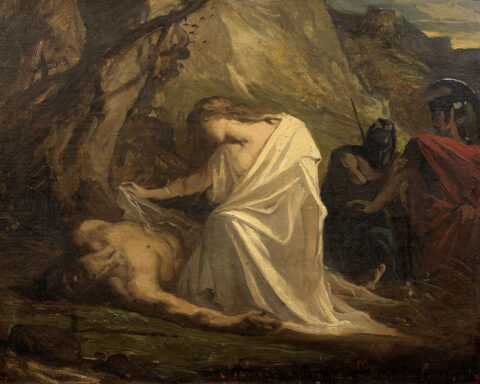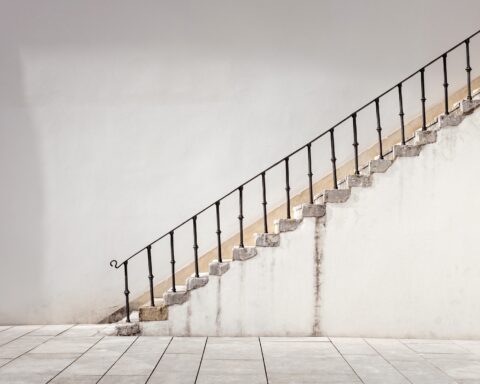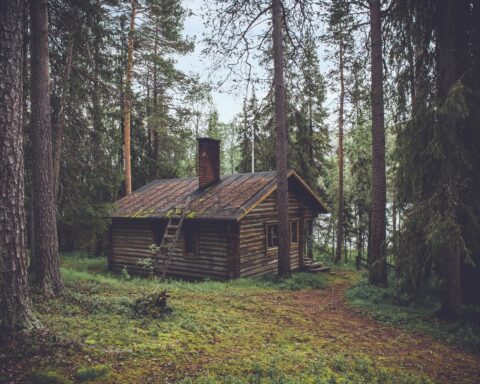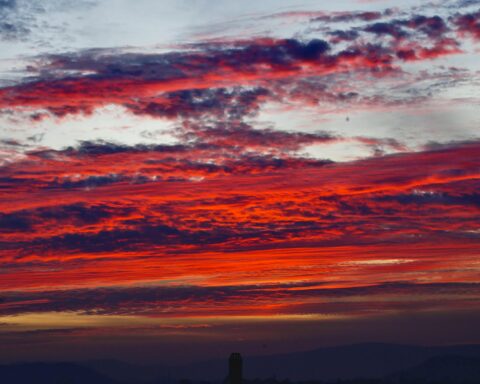Ernesto drops to the ground and splays his palms over the soil. “Suolo,” he says, although to me it sounds like swallow. I kneel beside him and drag my hands over the ground like I’m petting a sleeping cat. I echo him slowly. My accent sounds flat compared to Ernesto’s lilting Italian, but he doesn’t seem to mind.
He scoops a mound of dirt and rubs it between his hands. Clay fills the cracks of his tanned skin like mortar. It’s a testament to his relationship with the land. He understands the way the earth whispers, layers of secrets that wind between rocks and roots. I want to know it, too, how to cradle centuries of history and life so effortlessly. I close my eyes and try to feel what he does.
Ernesto nods his head and directs his voice to the earth, even though I think he’s talking to me. “You stay.”
“Grazie. Thank you, but I—my car. Macchina.” I sweep my arm in the direction of my rented sedan, which now resides among the tall grasses along the side of the road. We can’t see it from where we are, but the looming inconvenience of a busted radiator in a foreign land is present nonetheless.
I’ve been at Ernesto’s farmhouse all afternoon, and I think I’m finally starting to get how a man can want nothing more than he already has. Though it is alluring, I haven’t yet fallen into the cadence of simplicity. We’re in his garden, overlooking hills that swell and dive like golden waves in the sunset.
Ernesto’s wife, Iole, emerges from the house with wine, bread and a bowl of fresh tomatoes, aromatic with lemon and garlic. She speaks to her husband rapidly, almost lyrically, but I catch some words: fratello, domani.
“Her brother fix car tomorrow. Until then, mio amico, you stay.” He offers me a glass of wine. “Salute.”
Iole tilts her head toward me and clucks her tongue, urging me to relax. I’m reluctant but polite, so I loosen my shoulders, sink a little lower into the chair. They have already decided my fate, even if I haven’t. When she’s satisfied I’m comfortable, she retreats inside, humming something that sounds like a daydream.
The couple’s son, Elio, swoops by with arms outstretched like a plane, and the family dog, a little brown mutt named Miele, scampers after him. They bound down the hill, picking up speed, until Elio topples over and rolls to the bottom. The boy dusts his pants off and shouts something to his father, who looks at me with raised eyebrows as if to say, What can you do? He has the practiced, humored look of a parent who has given his child to the world. Nothing more, nothing less.
When deep blue begins to bleed into the horizon, we walk down the slope. Elio has gone inside to his mother, but Miele waits for us, then trots ahead through the rows of plants. Tomato vines cascade through the trellises, each one enormous and abundant.
“Quanti?” I ask, estimating at least fifty. I calculate how many tomatoes each plant produces. I put a value on his plot of garden, assign a price to a singular fruit. Monetizing things is a habit hard to break.
Ernesto shrugs and responds in English. “Enough.”
Harvest will come in a few days, but tonight Ernesto makes a small exception. He disappears behind some bushes and returns, grinning. In his hands are two Pisanellos that look almost violet in the moonlight. They are ruched from the stem and expand into large segments. He thrusts the fruit at me, his eyes shining.
I try to remember the last thing I was as proud of as Ernesto is his garden. It occurs to me I’ve never grown anything. I haven’t nurtured something from seed and felt it sprout under my care.
My phone vibrates in my pocket. It’s a colleague returning my text about car trouble, missing the meeting. He’s unhappy, but the meeting must go on. Well, then it must. This realization creeps upon me like a bruise, and I let the discomfort linger long enough to savor it. I’ve been packaging and selling authenticity so long my mind is a mental card catalog for details: the gap in Ernesto’s smile, the rosemary-scented breeze, the taste of a vine-ripened tomato, sweet and earthy. I put price tags on credibility and I’m very good at it, but I can’t bottle this feeling, and even if I could, I’m not sure I’d want to.
At the end of a row of bell-shaped Romas, Miele darts around me playfully. She wants a chase. I run after her, out of the tomato patch and into the field. I’m catching my breath when Ernesto appears at my side, pats my shoulder.
“Guarda. La luna piena.” He points to the sky and forms a circle with his hands.
And there it is. Impossibly big, the moon hangs in the sky like a giant, silver dinner plate. We crane our necks upward and marvel at the universe. With tomato juice running down our chins, we make lines between stars into constellations we recognize. It’s something we both understand.



